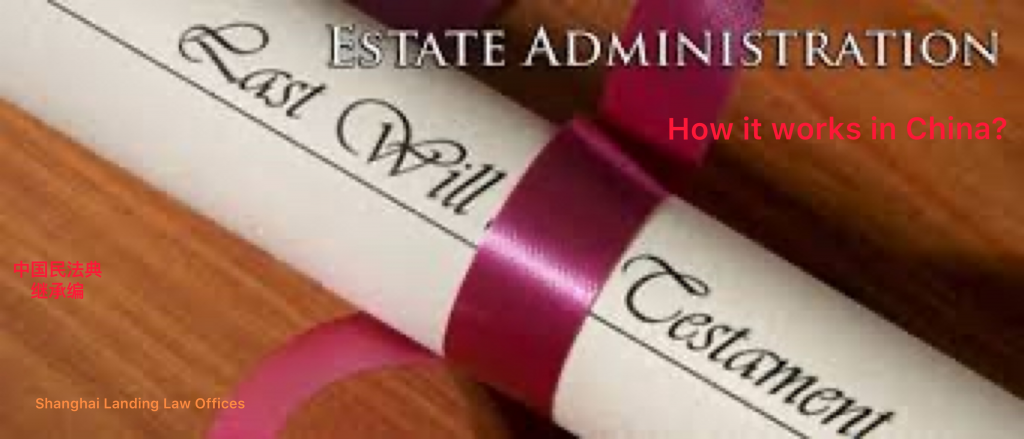Taxes are one of the major concerns of foreign heirs inheriting estates located in China. What taxes are levied on the estates or the inheritance? Is there any way of optimizing taxes in China on acquiring and cashing in on the estate assets?
I. Taxes for Inheritance of Estates
(1) No Estate Tax or Inheritance Tax in China
In today’s world, many countries are still levying estate tax or inheritance tax while some countries are move on the opposite direction of repealing such taxes.
Good news is that China has no estate tax or inheritance tax/succession, nor is there any gift tax. Estate tax refers to a tax that is imposed on the net value of all estates of the decedent, often subject to an exemption amount (varying from country to country), and inheritance tax or succession tax refers to the tax imposed on the portion of the estates distributed to the heir or recipients (who may not be the lineal heirs).
Apparently, there is a good likelihood that China may never enact its own version of the estate tax or inheritance tax law given the current worldwide trend of repealing such taxes.
Another post in last year on the topic.
(2) Individual Income Tax or Personal Income Tax
Individual Income Tax (IIT) is irrelevant if the estates are passed on according to the intestate succession rules (whereby the statutory lineal heirs receive the estates, including parents, spouse, children, siblings and paternal or maternal grandparents, but EXCLUDING grandchildren), or according to the valid wills (whereby non statutory lineal heirs or even non-family members receiving estates are exempt from paying individual income tax).
Here grandchildren from both paternal or maternal sides are in a tricky situation due to the flaw of China Succession Law whereby grandchildren are not considered as statutory lineal heirs. People who wish to leave properties to grandchildren shall have to do this through a will in China.
However, current tax rule is that real properties (land use right, houses, apartments or other estates) can be passed onto non-lineal recipients through wills without triggering heavy IIT on the part of the recipients but if the properties are gifted the same recipients during the donor’s lifetime, then the recipient shall be paying 20% of the IIT upon receiving the gift. This is a good point where estate planning is required for people who wish to give out properties to non family members.
(3) Deed Tax
Deed tax is a tax applied only to recipient of real properties upon title transfer.
According to the current rules, when real properties are left or bequeathed to statutory lineal heirs, no deed tax is charged. If the recipients (beneficiary of a will) are outside of the scope of statutory heirs, then deed tax will be levied.
Deed tax rate can be 3%-5% of the property value that can be a good amount of burden if the recipient is not rich in cash.
II. Taxes related to Future Sale of Estate Properties
You are not going to keep the estate properties for ever. Indeed, many foreign clients receiving estates from within China sell the estates immediately upon completion of the inheritance process.
Except for those taxes that are usually collected in a normal sale of properties, so far as inheritance/estate issues are concerned, individual income tax is also a big concern for selling estate properties.
IIT is well relevant when it comes to the time the estate recipients sell the real properties (acquired from the decedent) where heavy IIT will charged based on the 20% tax rate of the sale proceeds minus the purchase price (the price paid by the decedent for the real properties) plus estate-receiving costs. Clients who, alone or together with other heirs/recipients, are to receive multiple real properties from decedent can save substantial taxes if the passing of the estates are administered in a proper way. We have helped clients successfully in this regard.
III. Taxes related to Corporate Shares or Equity Interests
While tax rules related to real estate properties are pretty clear, it is not the case for corporate shares or equity interests in China company.
So far as we have found out in this area, there seems no taxes applicable to inheritance or bequeath of corporate shares either by way of intestate succession or testate succession if the recipient of the estate shares is within the statutory lineal heirs.
In the case of gift of shares during one’s lifetime, rules are pretty murky. At the central government level, no rules have been handed down by China Taxation Department, and some local tax authorities have issued tax rules to the effect that no personal income tax will be charged for gifting of shares/equity interests between lineal family members (parents, spouse, children, grandparents and grandchildren).
However, it is not clear whether recipient of shares who is outside of the scope of lineal family members described above will be required by pay individual income tax that is usually charged at a rate of 20%.
So, when the estate plan involves corporate shares, property communication with local tax authority is crucial in formulating the plan.





We recently found out my late mother who passed away almost 20 years ago had a property in Guangzhou which she inherited from her father. My siblings and I plan to go through the inheritance process to get the property if possible. All of us live overseas and none of us is Chinese national. I understand there’s no estate or inheritance tax in China. But when we sell said property, do we have to pay individual income tax on the profit from the sale (20%)? If so, how is the basis determined since my mother inherited this property? What other taxes are required? Your advice would be greatly appreciated. Thank you!